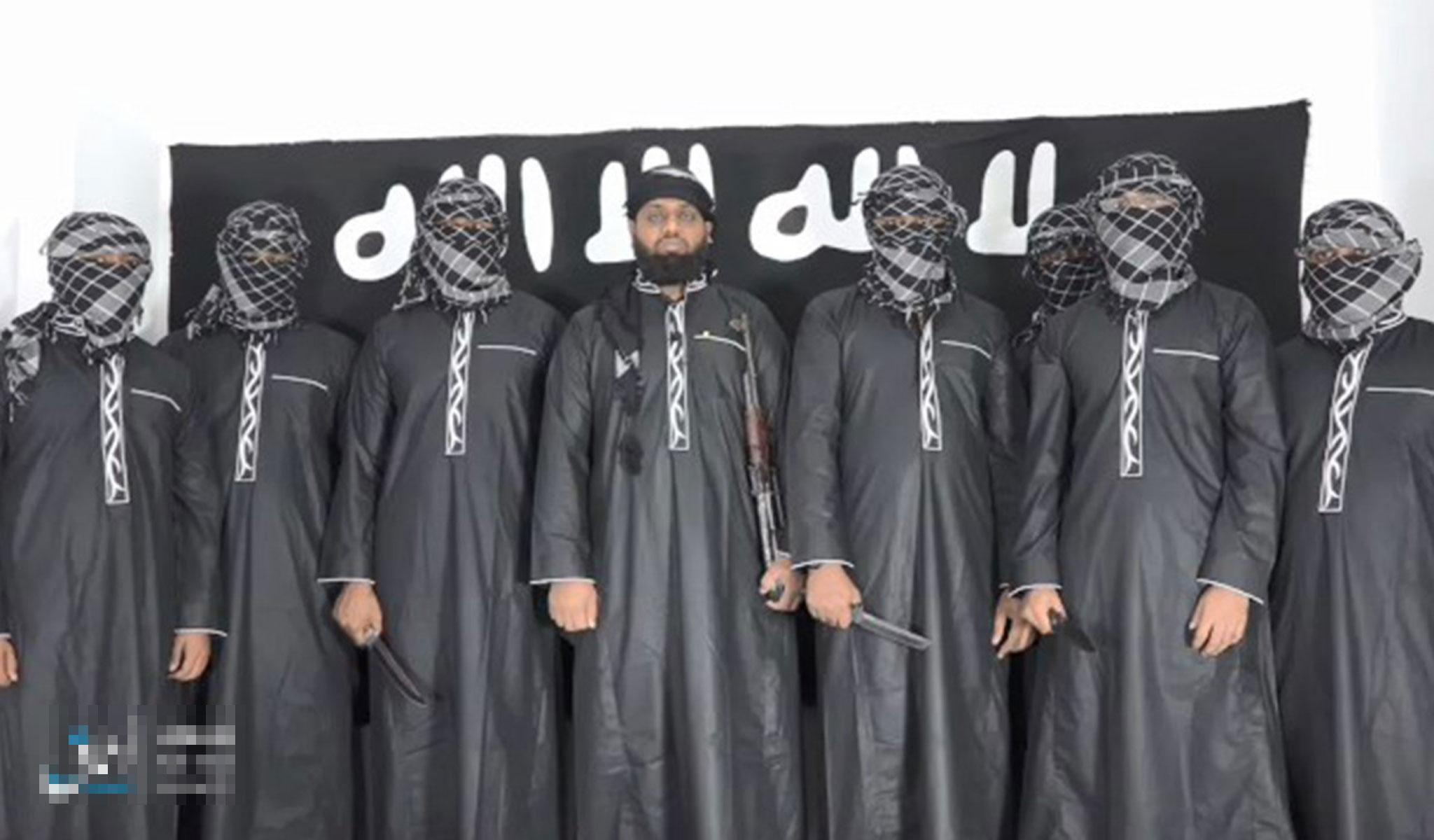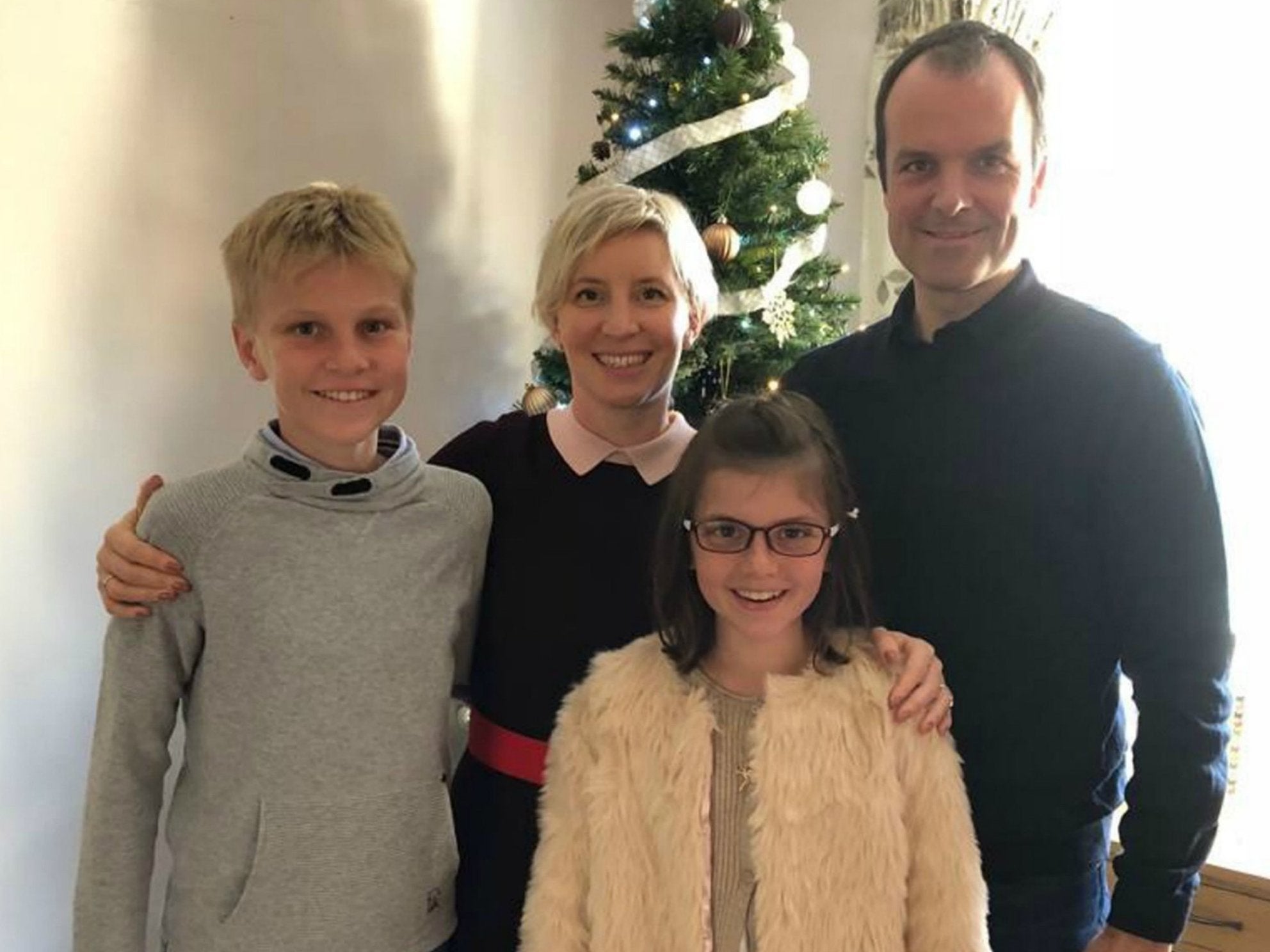Sri Lanka bombings: Isis claims responsibility for deadly church and hotel attacks on Easter Sunday
Isis publishes video of bombers pledging allegiance to its leader before attack
Your support helps us to tell the story
This election is still a dead heat, according to most polls. In a fight with such wafer-thin margins, we need reporters on the ground talking to the people Trump and Harris are courting. Your support allows us to keep sending journalists to the story.
The Independent is trusted by 27 million Americans from across the entire political spectrum every month. Unlike many other quality news outlets, we choose not to lock you out of our reporting and analysis with paywalls. But quality journalism must still be paid for.
Help us keep bring these critical stories to light. Your support makes all the difference.
Isis has claimed responsibility for bombings that left more than 300 people dead in Sri Lanka, releasing a video of the alleged attackers pledging allegiance to its leader.
In a statement released by its Amaq propaganda agency, the group said it was targeting citizens of countries bombings its territories and Christians.
“A security source told Amaq agency the perpetrators of the attack targeting the citizens of [US-led] coalition countries and Christians in Sri Lanka were Islamic State fighters,” it said.
The wording of Isis's claim is similar to that for previous atrocities that were thought to be inspired by the group but not directly orchestrated by it.
It came after Isis supporters circulated unverified photographs claiming to show three of the suicide bombers who targeted churches and hotels on Easter Sunday.
They showed the men posing with a knife and guns in front of Isis’s black flag, captioned with the names Abul Muktar, Abu Ubaida and Abul Barra.
A second and longer Isis statement released later on Tuesday called the atrocities a "blessed invasion" and said both suicide bombs and IEDs were used.
It named seven attackers using kunyas - including three matching the names used on the photos - which are Arabic war names frequently taken by Isis supporters who have fought for the group in Syria and Iraq.
Sri Lanka's prime minister told a press conference that some of the bombers had travelled abroad and returned home, but did not give further details.
Ranil Wickremesinghe warned there could be more bombs and militants "out there", adding: "We will be following up on Isis's claims, we believe there may be links.”
Isis's statement claimed to detail which bomber attacked which target, and said the seventh man "clashed with police and killed three of them" as security forces approached a safe house in Dematagoda.
The terrorist group published a photograph showing seven men with their faces covered, standing in front of an Isis flag with an unmasked eighth man.
He matched the photo of "Abu Ubaida", who Isis said blew himself up at a hotel, and looked similar to local militant leader Zahran Hashmi.

It was not immediately clear why Isis named seven attackers but published a photo of eight men, although authorities said a fourth hotel bombing had failed.
A one-minute video released by Isis showed the same men pledging allegiance to the "caliphate" and its leader Abu Bakr al-Baghdadi, before shouting "Allahu akbar".
The Sri Lankan government had attributed the atrocities to a little-known local Islamist group called National Thowheed Jama’ath, which was previously known for vandalising Buddhist statues.
But the president asked for foreign assistance to track down the bombers’ international links on Monday, because of intelligence reports “indicating that foreign terrorist organisations are behind the local terrorists”.
The targeting of churches and hotels popular with foreign tourists is a technique recently used by Isis and al-Qaeda affiliates.
But attacks organised or coordinated by Isis have been claimed faster, with detail, and sometimes seen the group put out gory videos and footage from the scene.
Isis released its claim shortly after Sri Lanka’s defence minister said the attacks were “carried out in retaliation” for shootings that left 50 Muslims dead at mosques in New Zealand last month.
Security analysts questioned whether an attack of such complexity, seeing multiple perpetrators strike targets in different parts of the country almost simultaneously - with at least nine bombs - could be prepared in little over a month.
Ruwan Wijewardene did not explain the source of the information but blamed “weakness” within Sri Lanka's security apparatus for failing to prevent the bombings.
“By now it has been established that the intelligence units were aware of this attack and a group of responsible people were informed about the impending attack,” he added after a letter warning security services was leaked online. “However, this information has been circulated among only a few officials.”
Isis issued a call for its followers to “take vengeance” for the Christchurch attacks in an audio recording from its official spokesman last month.
“The scenes of death in the two mosques are enough to wake the sleep and incite the supporters of the caliphate who live there, to take vengeance for their religion and for sons of their Ummah, who are killed everywhere in the world,” it said.
Experts had warned that the Christchurch massacre could be used for “reciprocal radicalisation”, which sees Islamists justify their attacks using Western air strikes and far-right atrocities, and the far-right justify their attacks using Islamist terrorism.
At the time, security services said they feared a “domino effect” in atrocities as Isis sought publicity and momentum following the destruction of its caliphate.
Sri Lankan militants were among the foreigners who travelled to fight for the group in Iraq and Syria.
National Thowheed Jama’ath’s leader, known as Mohammed Zahran or Zahran Hashmi, became known three years ago for incendiary speeches posted online that called for non-Muslims to be eliminated.
Weeks before the attacks, National Thowheed Jama’ath was named in a police advisory to security services warning of a potential threat to Catholic churches.
Telecommunications minister Harin Fernando posted images of the letter, entitled “information on an alleged plan attack” and detailing names and other details, on Twitter.

He called for “serious action” on why the atrocities were not prevented and the prime minister launched an inquiry.
Zahran was personally named in the warning and some international security experts said they had been asked about the group's activity.
Anne Speckhard, director of the International Center for the Study of Violent Extremism, said a Sri Lankan intelligence official approached her at a February conference with concerns about a violent, homegrown jihadi group.
Ms Speckhard said the official feared militants that “would just disappear” when the government tried to crack down on them.
“The intel person kind of came up to me and said, 'You know, we're kind of worried about this new group and there's some activity going. What do you think?'" Speckhard told the Associated Press. “It just kind of blows my mind that's who it was.”
While Sri Lanka is no stranger to sectarian violence, following a 25-year civil war with Tamil separatists that raged until 2009, Islamists have previously been considered a lesser threat than other groups.
Amarnath Amarasingam, a senior research fellow with the Institute for Strategic Dialogue, pointed out that recent new year celebrations and Buddhist religious events passed off safely.
“If this were local Muslim extremist groups who wanted to retaliate against anti-Muslim attacks by Buddhists, I think the targeting would have been a bit different,” he wrote on Twitter.
A total of nine bombings on Sunday killed at least 321 people and injured more than 500.
Sri Lankan officials said two people were involved in the attack at the Shangri-La hotel.
One bomber each attacked the Cinnamon Grand and Kingsbury hotels, and St Anthony's Shrine in Colombo, St Sebastian's church in the city of Negombo and Zion Church in the city of Batticaloa.
Two bombings hours later at a guesthouse and near an overpass on the outskirts of Colombo are still under investigation.
Suspects detonated explosives at a safe house near the overpass blast as police closed in, killing three officers.
Subscribe to Independent Premium to bookmark this article
Want to bookmark your favourite articles and stories to read or reference later? Start your Independent Premium subscription today.

Join our commenting forum
Join thought-provoking conversations, follow other Independent readers and see their replies
Comments